
Port Maria: Jamaica's Serene Coastal Gem
Port Maria, nestled on the north coast of Jamaica, is a serene and charming town that captures the essence of Caribbean beauty. This hidden gem offers a unique blend of natural splendor and cultural richness, making it a perfect destination for those seeking tranquility and an authentic Jamaican experience. One of the most striking features of Port Maria is its pristine beaches. The golden sands and crystal-clear waters provide an idyllic setting for sunbathing, swimming, and snorkeling. James Bond Beach, named after the famous spy character, is a popular spot, offering stunning views and a relaxing atmosphere. Additionally, the nearby Blue Hole offers adventurous visitors the chance to dive into refreshing natural pools surrounded by lush greenery. History enthusiasts will find Port Maria equally fascinating. The town is home to several historical sites, including the Fort Haldane, a British fortification from the 18th century. Walking through the town, visitors can also explore St. Mary Parish Church, one of the oldest churches in Jamaica, which stands as a testament to the island's colonial past. Local cuisine in Port Maria is a treat for the senses. The town's markets and eateries offer a variety of traditional Jamaican dishes, from jerk chicken to fresh seafood. Don't miss the chance to savor local fruits like ackee and breadfruit, which are integral to the island's culinary heritage. Engaging with the friendly locals and immersing yourself in their vibrant culture will make your visit to Port Maria truly unforgettable.
Local tips in Port Maria
- Visit James Bond Beach early in the morning to avoid crowds and enjoy the sunrise.
- Explore Fort Haldane for a glimpse into Jamaica's colonial history and breathtaking views of the coastline.
- Try local street food from vendors for an authentic taste of Jamaican cuisine.
- Bring cash, as some smaller shops and eateries may not accept credit cards.
- Take a guided tour to the Blue Hole for a safe and informative adventure experience.
Port Maria: Jamaica's Serene Coastal Gem
Port Maria, nestled on the north coast of Jamaica, is a serene and charming town that captures the essence of Caribbean beauty. This hidden gem offers a unique blend of natural splendor and cultural richness, making it a perfect destination for those seeking tranquility and an authentic Jamaican experience. One of the most striking features of Port Maria is its pristine beaches. The golden sands and crystal-clear waters provide an idyllic setting for sunbathing, swimming, and snorkeling. James Bond Beach, named after the famous spy character, is a popular spot, offering stunning views and a relaxing atmosphere. Additionally, the nearby Blue Hole offers adventurous visitors the chance to dive into refreshing natural pools surrounded by lush greenery. History enthusiasts will find Port Maria equally fascinating. The town is home to several historical sites, including the Fort Haldane, a British fortification from the 18th century. Walking through the town, visitors can also explore St. Mary Parish Church, one of the oldest churches in Jamaica, which stands as a testament to the island's colonial past. Local cuisine in Port Maria is a treat for the senses. The town's markets and eateries offer a variety of traditional Jamaican dishes, from jerk chicken to fresh seafood. Don't miss the chance to savor local fruits like ackee and breadfruit, which are integral to the island's culinary heritage. Engaging with the friendly locals and immersing yourself in their vibrant culture will make your visit to Port Maria truly unforgettable.
When is the best time to go to Port Maria?
Iconic landmarks you can’t miss
The World Famous Dunn's River Falls & Park
Experience the thrill of climbing a living waterfall, explore lush rainforest, and relax on a pristine beach at Jamaica's iconic Dunn's River Falls.
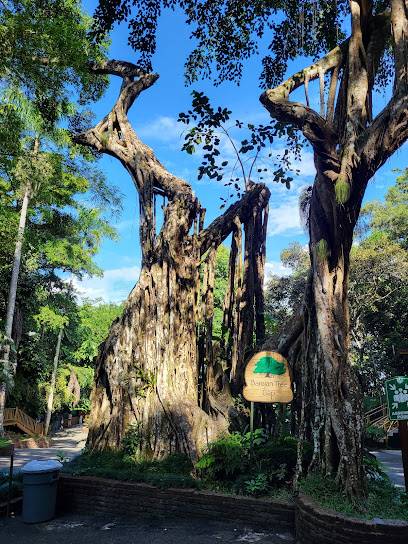
Emancipation Park
A symbol of freedom and resilience in the heart of Kingston, offering a serene escape and a tribute to Jamaican history.
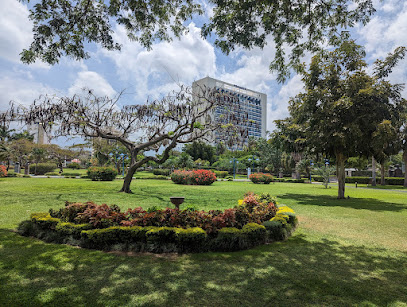
Bob Marley Museum
Step into the world of reggae legend Bob Marley at his former home and recording studio in Kingston, Jamaica. A vibrant tribute to his life and music.
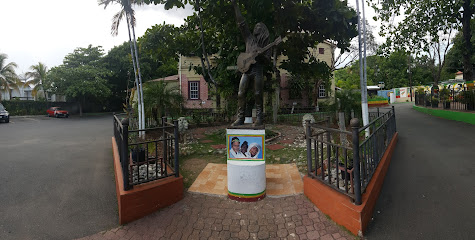
Hope Botanical Gardens
Discover Jamaica's natural beauty at Kingston's Hope Botanical Gardens: a historic oasis of tranquility, flora, and fauna.
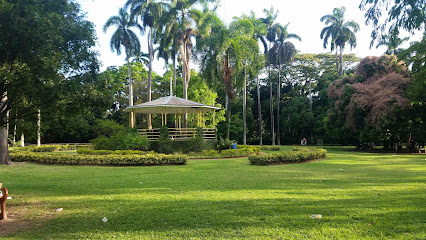
Rose Hall Great House
Explore Jamaica's most famous great house, steeped in history and legend, with tours of the restored mansion and grounds.
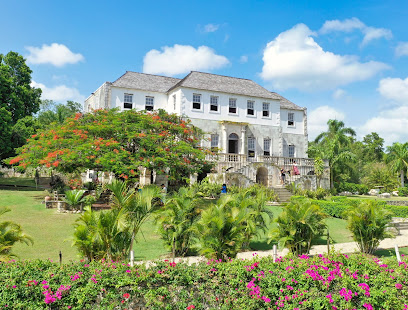
Sam Sharpe Square
Discover Jamaica's history at Sam Sharpe Square in Montego Bay, a vibrant landmark honoring National Hero Samuel Sharpe and the fight for freedom.
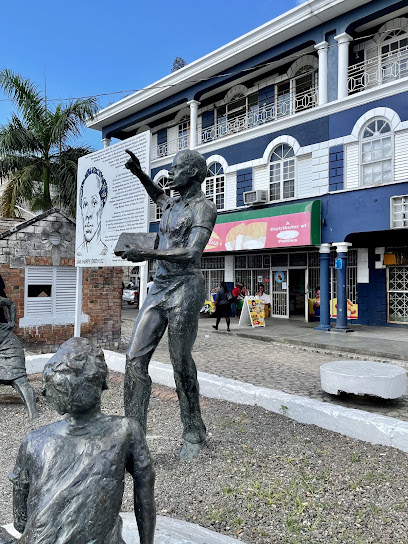
Castleton Botanical Gardens
Discover a serene escape at Castleton Botanical Gardens: a historic Jamaican paradise with exotic flora and tranquil riverside views.
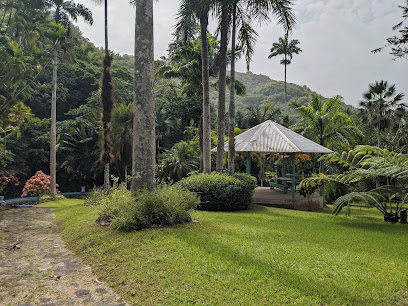
Half-Way-Tree Clock
Discover the historic Half-Way-Tree Clock in Kingston, Jamaica, a vibrant landmark embodying the island’s rich culture and community spirit.
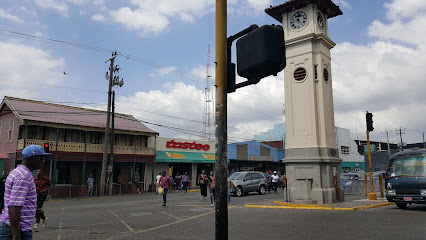
Old Spanish Bridge
Discover the historic Old Spanish Bridge in St. Mary, Jamaica: a picturesque relic of Spanish colonization offering natural beauty and tranquil river escapes.
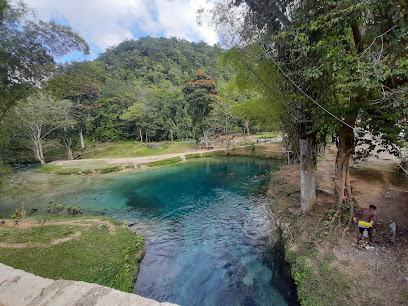
Fort Charles
Step back in time at Fort Charles, Port Royal: Explore Jamaica's colonial history, maritime heritage, and the legendary 'wickedest city'!
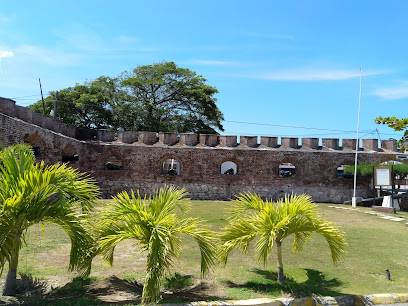
Island Gully Falls
Discover Jamaica's hidden gem: Island Gully Falls, where turquoise waters meet lush rainforest for an unforgettable adventure.
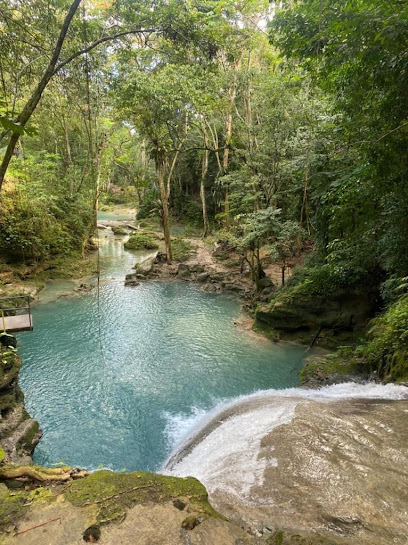
Trench Town Culture Yard Museum
Discover the roots of reggae at Bob Marley's former home in Trench Town, a vibrant museum and National Heritage Site in Kingston, Jamaica.
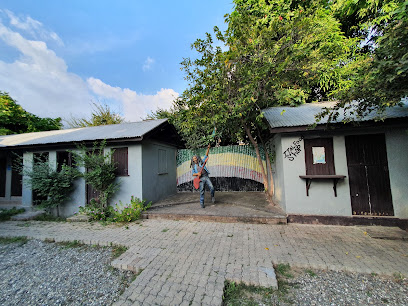
Pagee Beach
Discover the unspoiled beauty and local charm of Pagee Beach in Port Maria, Jamaica. A serene escape with golden sands and turquoise waters.
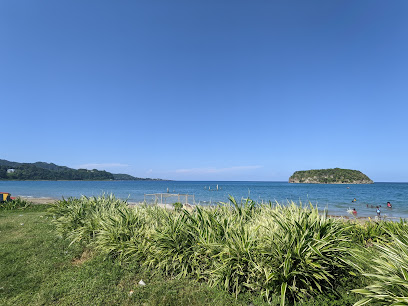
Seville Great House
Explore Jamaica's rich history at Seville Great House, from its Taino roots to its colonial past.
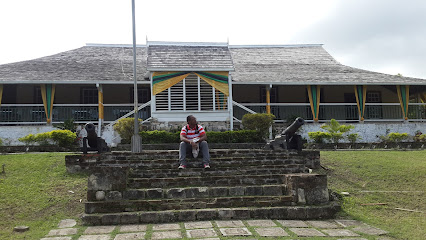
Sun Valley Plantation Hummingbird Garden
Discover Jamaica's natural beauty at Sun Valley Plantation Hummingbird Garden. A tranquil escape filled with vibrant flora and hummingbirds near Ocho Rios.
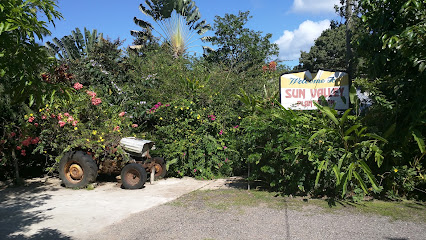
Unmissable attractions to see
The World Famous Dunn's River Falls & Park
Experience the breathtaking beauty and adventure of Dunn's River Falls & Park in Ocho Rios, Jamaica, where nature and thrill meet.
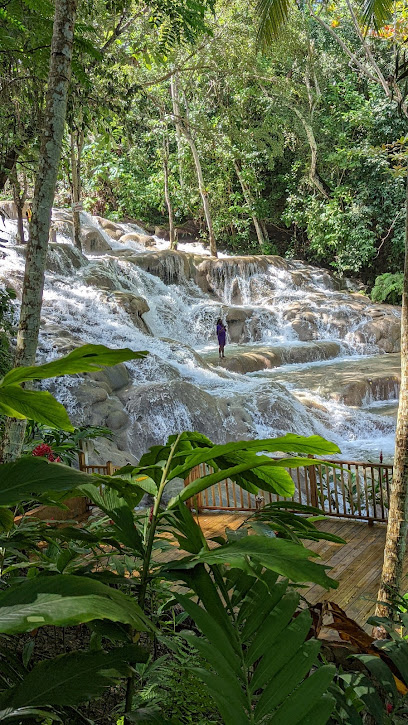
Mystic Mountain
Discover the thrill of adventure and the beauty of nature at Mystic Mountain in Ocho Rios, Jamaica, where unforgettable experiences await.
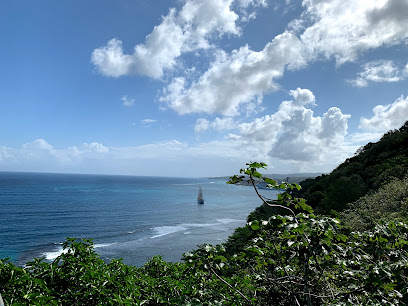
Turtle River Park
Explore the natural beauty and tranquility of Turtle River Park in Ocho Rios, a perfect retreat for nature enthusiasts and tourists alike.
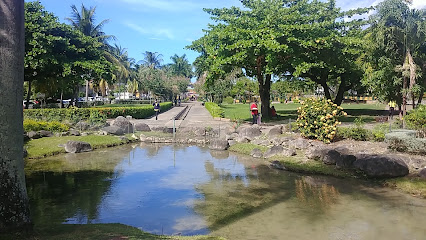
Castleton Botanical Gardens
Explore the lush beauty of Castleton Botanical Gardens, a serene botanical haven in the heart of Jamaica, rich with tropical flora and picturesque landscapes.
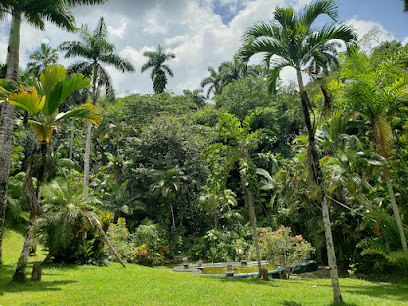
Somerset Falls
Explore Somerset Falls, a stunning natural wonder in Hope Bay, Jamaica, featuring cascading waterfalls, swimming pools, and local cuisine in a tropical paradise.
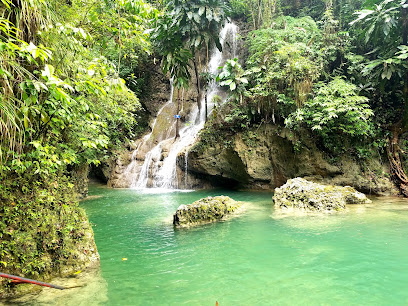
Old Spanish Bridge
Discover the historical allure and natural beauty of the Old Spanish Bridge, a must-visit landmark that showcases Jamaica's rich heritage.
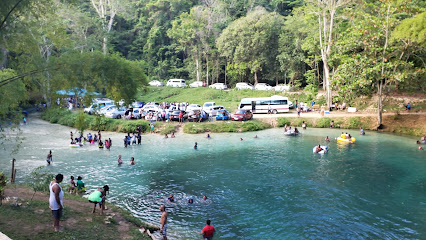
Reach Falls
Explore the breathtaking beauty of Reach Falls, a hidden gem in Jamaica's ecological park, offering stunning waterfalls and vibrant wildlife in a serene setting.
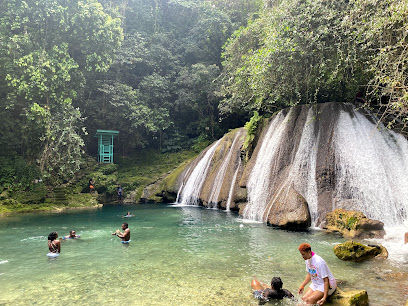
Island Gully Falls
Explore the breathtaking Island Gully Falls, where adventure meets tranquility in the heart of Jamaica's stunning landscapes.
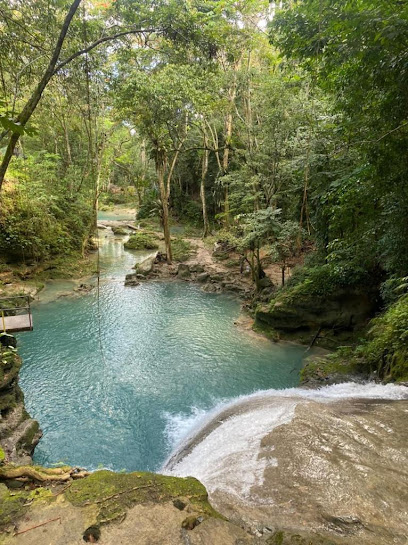
Club Kingston - VIP Airport Lounge / VIP Attractions
Discover tranquility and Jamaican hospitality at Club Kingston, the VIP lounge at Norman Manley International Airport.
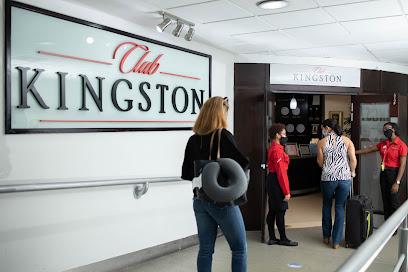
Columbus Cove
Discover the stunning beauty of Columbus Cove in Drax Hall, a tropical paradise perfect for relaxation and adventure on Jamaica's coastline.
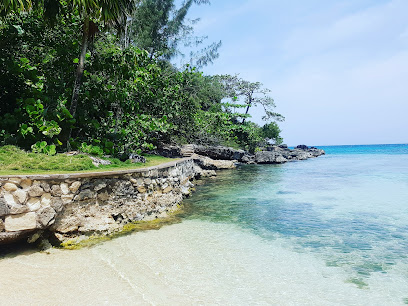
Yaaman Adventure Park
Experience the adventure of a lifetime at Yaaman Adventure Park, where thrilling rides and breathtaking scenery await every visitor in Jamaica.
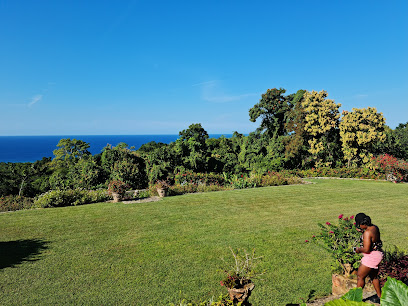
Wata Land park
Discover thrilling water attractions and family fun at Wata Land Park in Lodge, Jamaica - a perfect escape for adventure seekers and relaxation lovers.
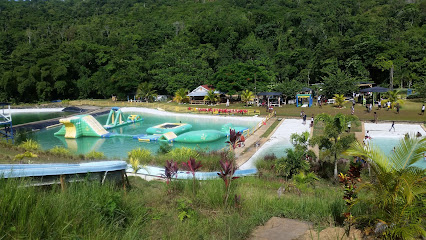
White River Calypso Rafting & Tubing
Discover the excitement of White River Calypso Rafting & Tubing in Ocho Rios, where adventure meets the stunning beauty of Jamaica's natural landscapes.
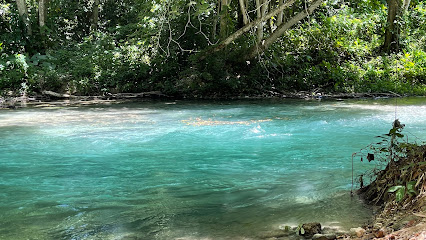
Cascade Blue Hole
Explore the enchanting Cascade Blue Hole, a natural oasis in Jamaica with crystal-clear waters and stunning waterfalls, perfect for relaxation and adventure.
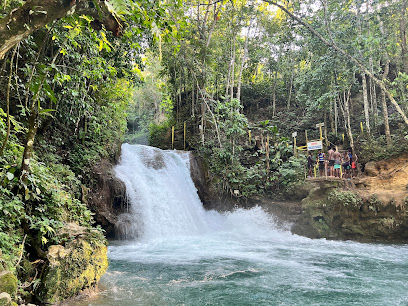
Fisherman Beach
Discover the serene beauty of Fisherman Beach in Oracabessa, a nature preserve perfect for relaxation, exploration, and local culture.
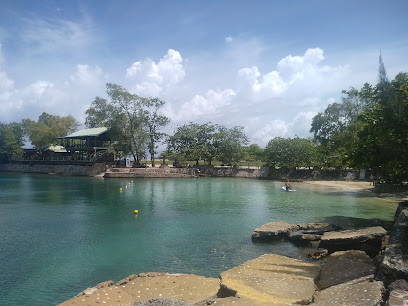
Essential places to dine
KFC Port Maria
Experience the vibrant flavors of Jamaica at KFC Port Maria - where crispy meets tropical delight in every bite.
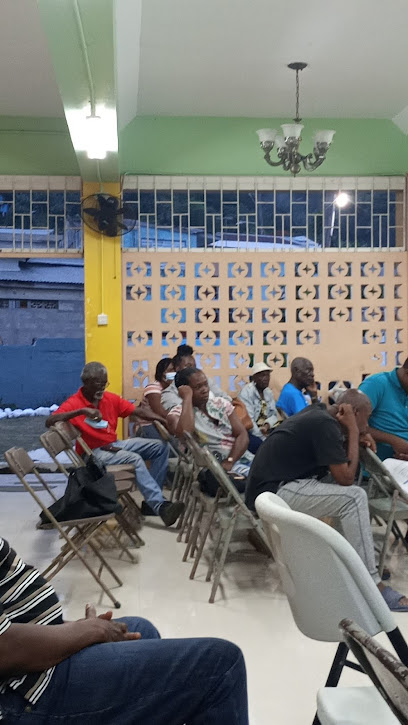
Christopher’s at Hermosa Cove
Experience exquisite Caribbean flavors amidst breathtaking views at Christopher’s at Hermosa Cove in Ocho Rios.
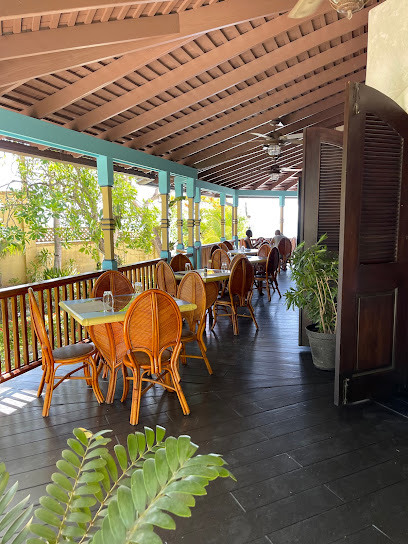
Juici Patties
Savor authentic Jamaican flavors at Juici Patties in Port Maria - home to delicious patties that delight every palate.
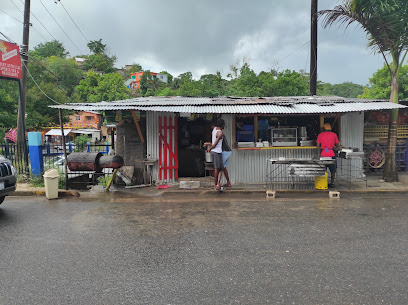
D'shore Beach Bar And Restaurant
Experience authentic Jamaican flavors at D'shore Beach Bar And Restaurant while enjoying breathtaking ocean views in Port Maria.
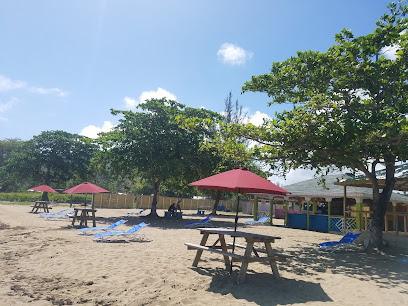
Chicken Hut
Experience authentic Jamaican cuisine at Chicken Hut in Port Maria – where every bite tells a story.
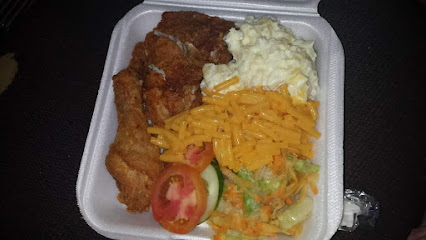
Geraldine & Charmaines's Homestyle Restaurant
Savor authentic Jamaican cuisine at Geraldine & Charmaine's Homestyle Restaurant in Port Maria – where every dish tells a story.
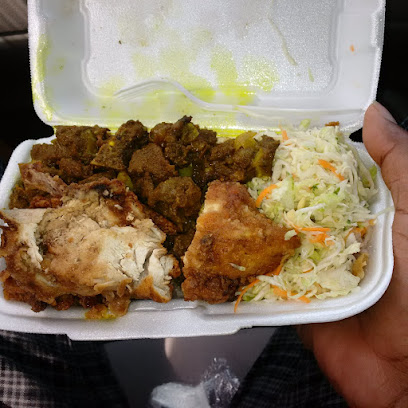
PG'S Toscanini Restaurant
Discover exceptional Italian cuisine with Caribbean flair at PG'S Toscanini Restaurant in Ocho Rios – where every meal is a celebration.
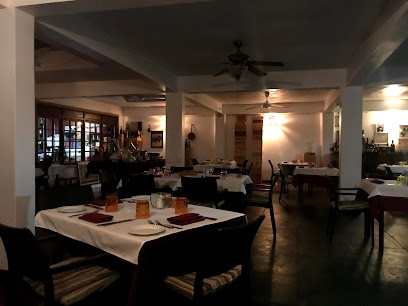
Island View Restaurant and Lounge
Discover authentic Jamaican cuisine at Island View Restaurant and Lounge with breathtaking ocean views in Port Maria.
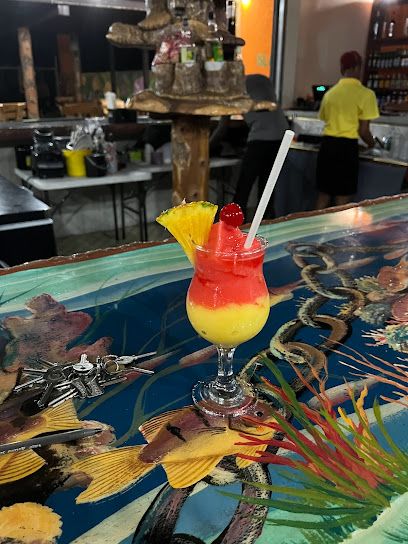
Cassalouko Company ltd.
Experience authentic Jamaican cuisine at Cassalouko Company Ltd., where every dish tells a story of flavor and tradition.
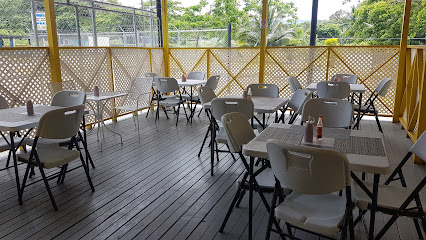
Portland Jerk Center
Experience authentic Jamaican flavors at Portland Jerk Center in Port Maria—where every bite tells a story of island heritage.
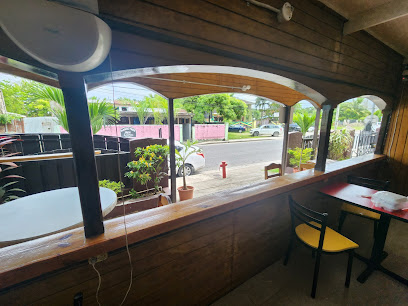
Saint Mary Seafood & Lounge
Experience authentic Jamaican seafood delicacies in a relaxed lounge setting at Saint Mary Seafood & Lounge, Port Maria.
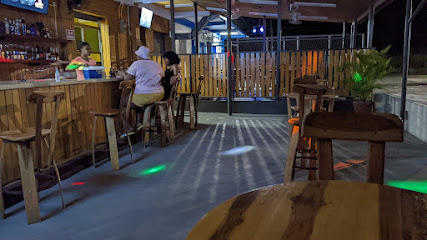
Esses Restaurant
Discover the vibrant flavors of Jamaica at Esses Restaurant in Port Maria – where authentic cuisine meets warm hospitality.
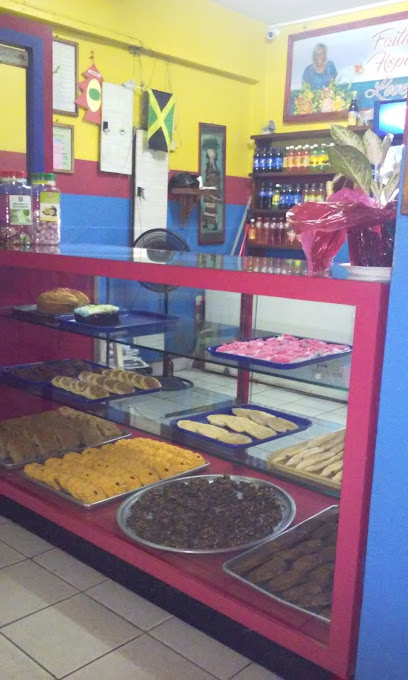
Solo's Place
Experience authentic Jamaican cuisine at Solo's Place - where local flavors meet vibrant culture in a warm and inviting atmosphere.
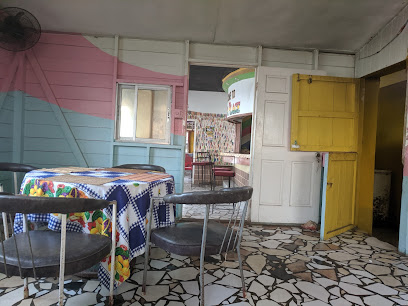
Code life bar&grill
Experience authentic Jamaican cuisine at Code Life Bar & Grill in Port Maria – where flavors meet vibrant culture.
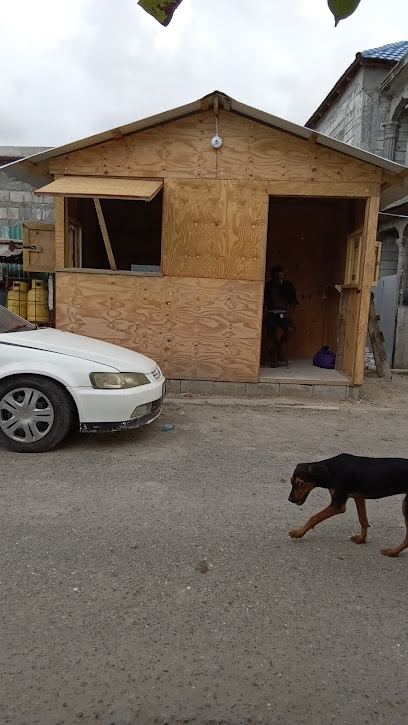
Slice of Eden
Discover authentic Jamaican cuisine at Slice of Eden in Port Maria - where every dish tells a story.
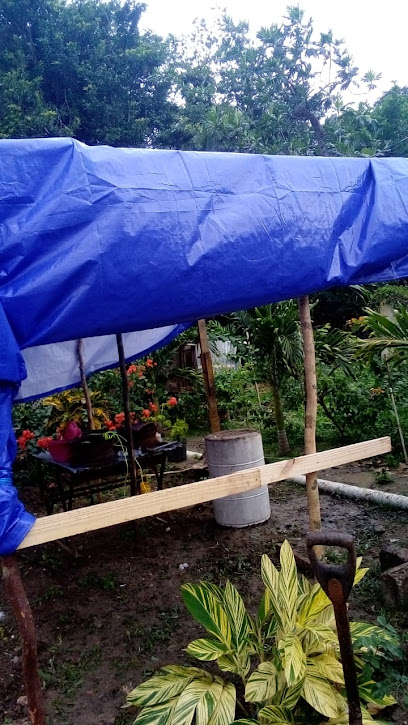
Markets, malls and hidden boutiques
Giant Family Mart
Explore the flavors of Jamaica at Giant Family Mart, your ultimate grocery destination in Port Maria for local and international delights.
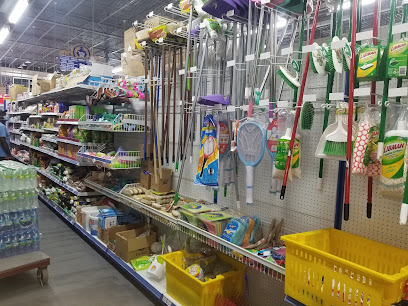
Courts Jamaica Ltd - PORT MARIA
Discover stylish furniture and home appliances at Courts Jamaica Ltd in Port Maria, your one-stop shop for quality and design.
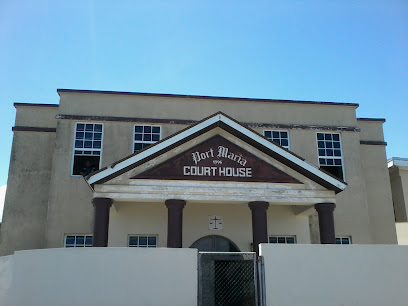
Port Maria Market
Experience the vibrant flavors and colors of Jamaica at Port Maria Market, where fresh produce and local crafts come together in a lively atmosphere.
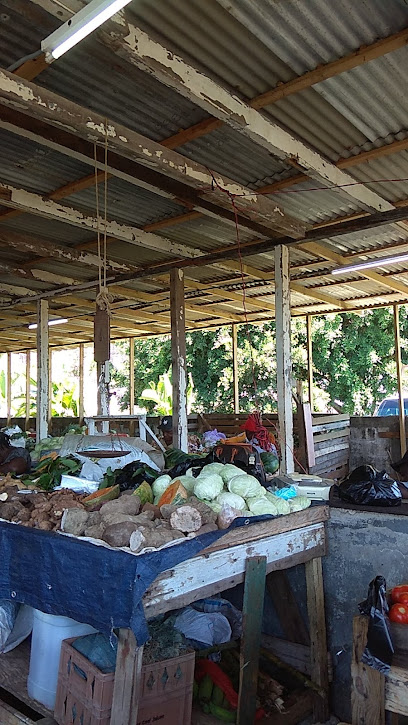
Edgechem Port Maria
Discover Edgechem Port Maria, a premier home goods store in Jamaica offering unique local crafts and essentials to enhance your living spaces.
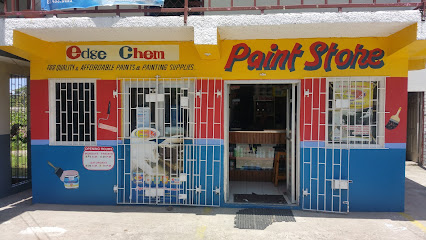
Pioneer Plaza
Immerse yourself in the vibrant atmosphere of Pioneer Plaza, Port Maria's premier shopping destination with local culture and cuisine.

Boswell's Hardware
Discover Boswell's Hardware in Port Maria, your go-to spot for tools, supplies, and local charm in Jamaica.
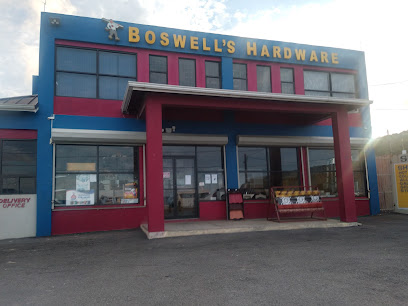
C&W hardware
C&W Hardware in Port Maria is your trusted partner for quality building materials and expert advice for all your construction needs.

L P MARTIN & COMPANY
Explore L P Martin & Company for unique home goods, local craftsmanship, and vibrant Jamaican culture in the heart of Port Maria.

Ubee Beauty & Gift
Explore the vibrant world of haberdashery at Ubee Beauty & Gift in Port Maria, a cultural gem showcasing local craftsmanship and creativity.
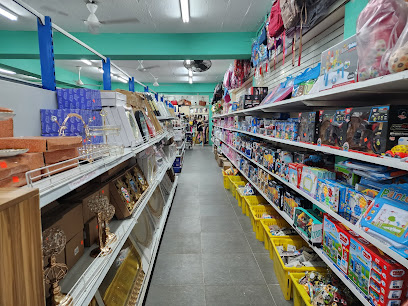
Beatz By Shan
Discover unique fashion pieces at Beatz By Shan, the ultimate clothing store in Port Maria, Jamaica, reflecting the vibrant culture and style of the island.

JAG Baby & Me
Explore vibrant children's fashion at JAG Baby & Me in Port Maria - a trendy haven for stylish baby and kids' clothing.

LiquorIsland Consignment
Explore unique treasures and local craftsmanship at LiquorIsland Consignment in Port Maria, a perfect stop for authentic Jamaican finds.

The Business Hub
Discover cutting-edge technology and exceptional customer service at The Business Hub, your go-to electronics store in Port Maria.
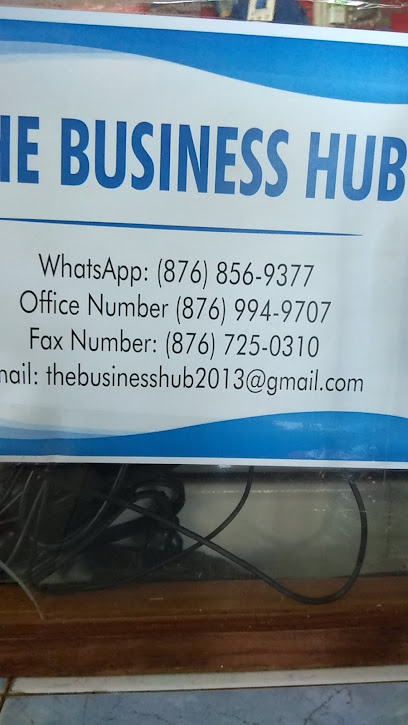
Port Maria Transportation Centre & Arcade
Explore the vibrant Port Maria Transportation Centre & Arcade, where local shopping meets cultural immersion in the heart of Jamaica.
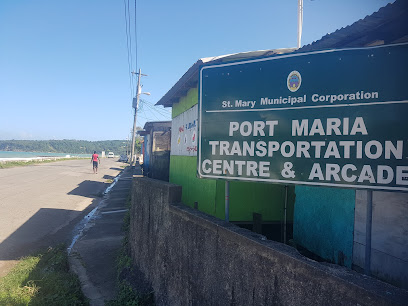
Sinclair Bargain Centre
Explore amazing deals and unique finds at Sinclair Bargain Centre, the ultimate shopping destination in Port Maria, Jamaica.
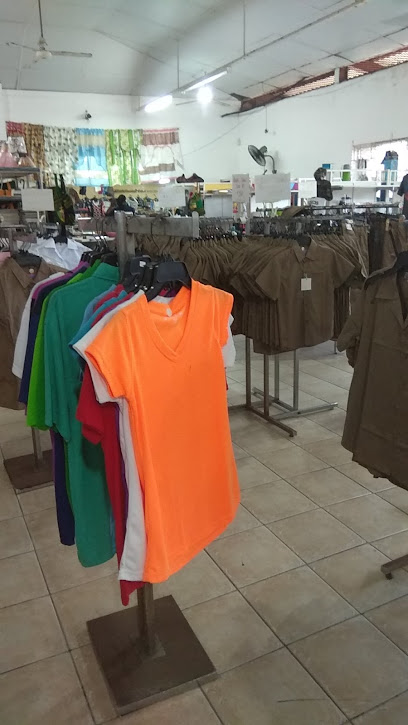
Essential bars & hidden hideouts
KFC Port Maria
Experience the unique flavors of Jamaica at KFC Port Maria, where iconic fried chicken meets local culinary delights in a welcoming atmosphere.
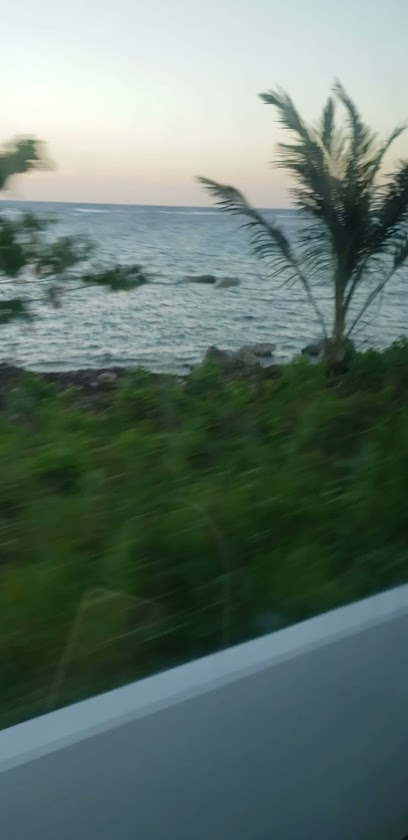
Bizot Bar at GoldenEye Resort
Experience the tropical luxury of Bizot Bar at GoldenEye Resort, where exquisite cocktails and stunning sea views create the perfect getaway.
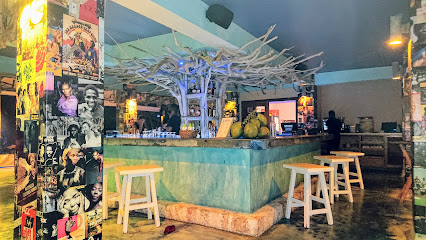
D'shore Beach Bar And Restaurant
Experience the best of Jamaican cuisine with stunning ocean views at D'shore Beach Bar And Restaurant in Port Maria.
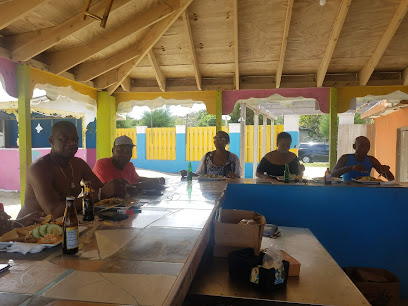
Island View Restaurant and Lounge
Discover the flavors of Jamaica at Island View Restaurant and Lounge, where breathtaking sea views meet authentic local cuisine.
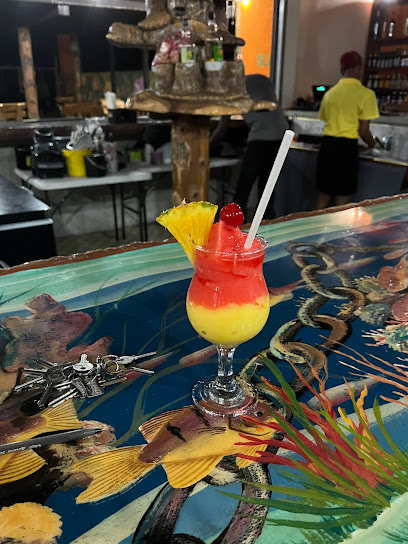
Levelup Lounge & Cafe
Experience the vibrant energy of Levelup Lounge & Cafe in Port Maria, where delicious drinks and lively entertainment await.
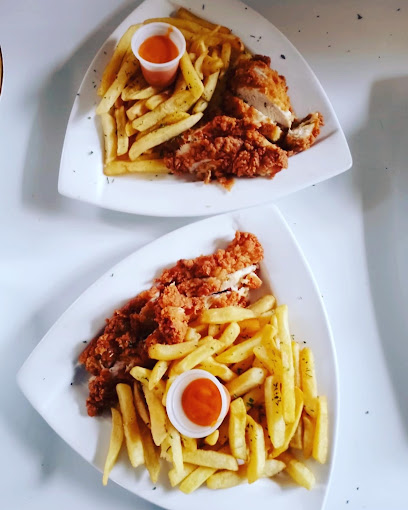
Iguana's Wine Bar & Lounge
Experience the vibrant nightlife of Jamaica at Iguana's Wine Bar & Lounge, where cocktails and good times await.
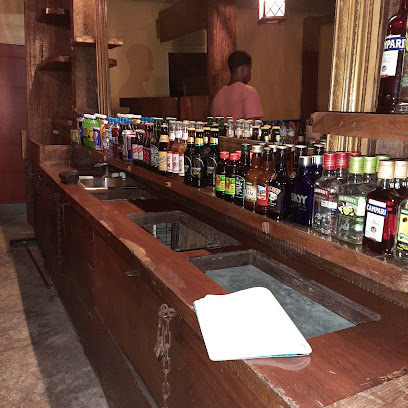
Cassalouko Company ltd.
Discover authentic Jamaican cuisine at Cassalouko Company Ltd. in Port Maria, where every dish tells a story of island tradition and flavor.
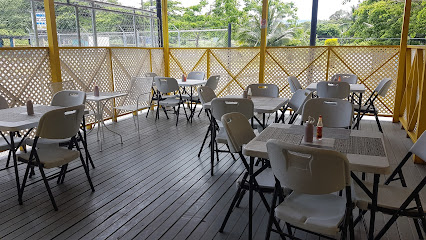
Saint Mary Seafood & Lounge
Experience the best of Jamaican seafood at Saint Mary Seafood & Lounge in Port Maria, where fresh flavors meet a cozy atmosphere.
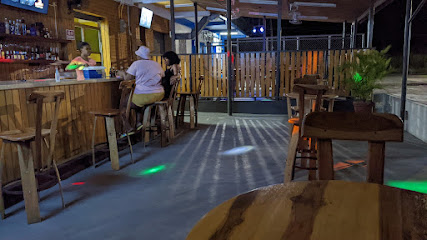
Trinity’s Land cross road
Experience the vibrant nightlife at Trinity’s Land, a lively bar in Port Maria, where local culture meets refreshing drinks and live music.

Mango Tree Lounge And Inn
Discover the charm of Mango Tree Lounge And Inn in Port Maria, a tropical bar and inn offering a lively atmosphere, local flavors, and unforgettable experiences.
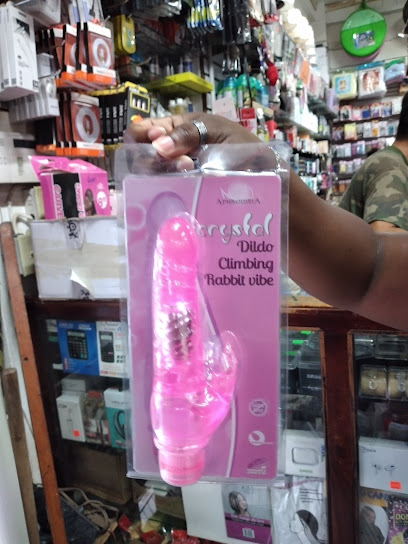
Urban Sports Bar & Lounge
Experience the lively atmosphere and delicious grill cuisine at Urban Sports Bar & Lounge, the heart of Galina's social scene.

Solo's Place
Discover the heart of Jamaica through its flavors at Solo's Place, where authentic cuisine meets vibrant island culture.
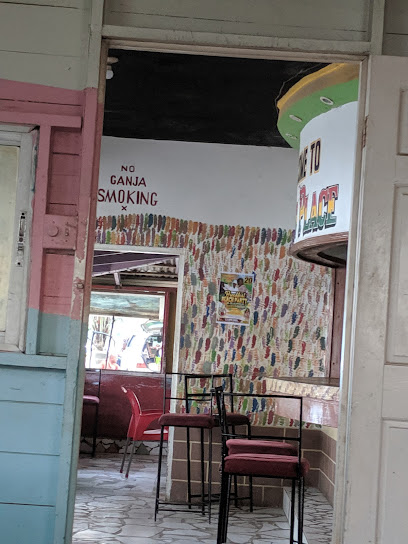
Lavish sports bar
Immerse yourself in the vibrant atmosphere of Lavish Sports Bar, where delicious food and thrilling sports unite in Portmaria.

G&S
Discover G&S in Port Maria, a unique car wash offering a bar and clothing store, perfect for tourists seeking local culture and convenience.
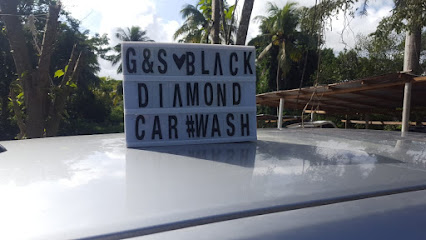
Local Phrases about Port Maria
-
- HelloWa gwan
[wah gwan] - GoodbyeLikkle more
[likkle more] - YesYa man
[ya man] - NoNuh
[nuh] - Please/You're welcomeNuh problem
[nuh problem] - Thank youTank yuh
[tank yuh] - Excuse me/SorrySarry
[sarry] - How are you?How yuh duh?
[how yuh doo?] - Fine. And you?Mi deh yah. An yuh?
[me deh yah. an yuh?] - Do you speak English?Yuh chat English?
[yuh chat english?] - I don't understandMi nuh ondastan
[me nuh understand]
- HelloWa gwan
-
- I'd like to see the menu, pleaseMi wah si di menu, pliz
[me wah see di menu, pleez] - I don't eat meatMi nuh nyam meat
[me nuh nyam meat] - Cheers!Cheers!
[cheers!] - I would like to pay, pleaseMi wah pay, pliz
[me wah pay, pleez]
- I'd like to see the menu, pleaseMi wah si di menu, pliz
-
- Help!Help!
[help!] - Go away!Go weh!
[go way!] - Call the Police!Call di Police!
[call di police!] - Call a doctor!Call a docta!
[call a doctor!] - I'm lostMi lost
[me lost] - I'm illMi sick
[me sick]
- Help!Help!
-
- I'd like to buy...Mi wah buy...
[me wah buy...] - I'm just lookingMi jus a look
[me just a look] - How much is it?A wah price?
[a wah price?] - That's too expensiveDat too much
[dat too much] - Can you lower the price?Yuh can drop di price?
[yuh can drop di price?]
- I'd like to buy...Mi wah buy...
-
- What time is it?A wah time it deh?
[a wah time it deh?] - It's one o'clockA one o'clock
[a one o'clock] - Half past (10)Haaf paa (10)
[haaf paa (10)] - MorningMawnin
[mawnin] - AfternoonAftanoon
[aftanoon] - EveningEvenin
[evenin] - YesterdayYestadeh
[yestadeh] - TodayToday
[today] - TomorrowTomorruh
[tomorruh] - 1One
[one] - 2Two
[two] - 3Tree
[tree] - 4Fo'
[fo'] - 5Fiv
[fiv] - 6Six
[six] - 7Seven
[seven] - 8Eight
[eight] - 9Nine
[nine] - 10Ten
[ten]
- What time is it?A wah time it deh?
-
- Where's a/the...?Weh di...
[weh di...] - What's the address?A wah di address deh?
[a wah di address deh?] - Can you show me (on the map)?Yuh can show mi (pan di map)?
[yuh can show me (pan di map)?] - When's the next (bus)?Wen di nex (bus) a come?
[wen di nex (bus) a come?] - A ticket (to ....)A tiket (to ....)
[a ticket (to ....)]
- Where's a/the...?Weh di...
History of Port Maria
-
Port Maria, located on the northern coast of Jamaica, was established in the late 17th century during the British colonization of the island. This coastal town quickly became an essential hub for maritime activities, serving as a vital port for the export of sugar, bananas, and other local produce. Its natural harbor provided safe anchorage for ships, making it a significant point of trade and commerce in the region.
-
The history of Port Maria is deeply intertwined with the Maroons, escaped slaves who established free communities in the rugged interior of Jamaica. In the 18th century, the Maroons played a crucial role in the island's resistance against British colonial rule. The nearby community of Moore Town, established by the Windward Maroons, is an enduring testament to their resilience and cultural heritage.
-
Fort Haldane, perched on the hills overlooking Port Maria, was constructed in 1759 to defend the town and its harbor from potential Spanish attacks and pirate raids. Named after General George Haldane, then Governor of Jamaica, the fort featured barracks, a powder magazine, and several cannons. Today, the ruins of Fort Haldane offer a glimpse into Jamaica's colonial military history and provide stunning views of the surrounding landscape.
-
The St. Mary Parish Church, located in the heart of Port Maria, is one of the oldest Anglican churches in Jamaica. Constructed in the early 18th century, the church has witnessed numerous historical events and transformations. Its architecture reflects the colonial era, and it remains a cornerstone of the local community, hosting regular services and cultural events.
-
In the late 19th and early 20th centuries, Port Maria became a pivotal center for Jamaica's burgeoning banana trade. The town's harbor facilitated the export of bananas to North America and Europe, contributing significantly to the local economy. This period marked a boom in agricultural production and saw the rise of influential plantation owners and merchants in the region.
-
Long before European colonization, the area around Port Maria was inhabited by the Taino people, the indigenous inhabitants of Jamaica. Archaeological evidence, including pottery and tools, points to a rich Taino culture that thrived on the island. The Taino legacy is an integral part of Port Maria's history, and ongoing efforts aim to preserve and honor their contributions to Jamaica's cultural heritage.
-
In recent decades, Port Maria has undergone significant transformation, evolving from a historic trading hub to a vibrant town that blends its rich history with modern amenities. The construction of new infrastructure, including roads, schools, and healthcare facilities, has improved the quality of life for residents. The town has also become a point of interest for tourists seeking an authentic Jamaican experience, with local festivals, markets, and cultural sites drawing visitors from around the world.
Port Maria Essentials
-
Port Maria is located on the northern coast of Jamaica, about 90 kilometers east of Montego Bay and 50 kilometers north of Kingston. The closest international airport is Norman Manley International Airport (KIN) in Kingston. From Kingston, you can take a taxi or hire a private car to Port Maria, which usually takes around 1.5 to 2 hours by road. Another option is the Ian Fleming International Airport, located in Boscobel, which is about 15 minutes from Port Maria. This airport handles smaller, private flights. Public buses and route taxis are also available and can be a more budget-friendly option.
-
In Port Maria, taxis and route taxis (shared taxis) are the most common forms of transportation. They are relatively inexpensive and can be flagged down on the street or arranged through your accommodation. For more flexibility, you can rent a car from Kingston or Montego Bay. Driving in Jamaica requires caution due to narrow roads and local driving habits. Buses also connect Port Maria with nearby towns and cities, though they can be less frequent and may not adhere to strict schedules.
-
The official currency of Jamaica is the Jamaican Dollar (JMD). While major hotels and some restaurants accept credit cards, smaller vendors and local markets often require cash. It is advisable to carry some Jamaican Dollars, especially for small purchases and tips. ATMs are available in Port Maria, but it’s wise to withdraw a sufficient amount of cash when you arrive in the country. USD is sometimes accepted, but the exchange rate may not always be favorable.
-
Port Maria is generally safe for tourists, but it is important to remain cautious, especially in less busy areas. Avoid wandering alone at night and be mindful of your belongings in crowded places. While Port Maria itself does not have a high crime rate targeting tourists, it is advisable to stay vigilant. Neighborhoods closer to Kingston may have higher crime rates, so exercise additional caution if traveling to those areas.
-
In case of an emergency, dial 119 for police assistance or 110 for an ambulance. The nearest hospital is the Port Maria Hospital, which provides basic medical care. For more serious conditions, you might need to be transferred to a larger facility in Kingston or Montego Bay. It is highly recommended to have travel insurance that covers medical emergencies. Pharmacies are available in Port Maria for minor health issues and over-the-counter medications.
-
Fashion: Do dress comfortably and casually, but avoid overly revealing clothing. Beachwear should be reserved for the beach and not worn in town. Religion: Do be respectful of religious practices and dress modestly when visiting churches. Public Transport: Do use route taxis and buses, but confirm the fare before boarding. Don’t expect strict adherence to schedules. Greetings: Do greet locals with a friendly 'Good morning' or 'Good afternoon.' Jamaicans appreciate politeness. Eating & Drinking: Do try local foods and beverages, but don’t criticize the cuisine. Accept food offerings graciously as refusing can be seen as impolite.
-
To experience Port Maria like a local, visit the local markets where you can buy fresh produce and authentic Jamaican goods. Engage with locals who are often friendly and eager to share stories about their town. Don’t miss visiting the historic Fort Haldane and the Firefly Estate, the former home of playwright Noël Coward. For a unique experience, take a boat trip to the nearby James Bond Beach, known for its scenic beauty and connection to the famous film series.
Trending Landmarks in Port Maria
-
The World Famous Dunn's River Falls & Park
-
Emancipation Park
-
Bob Marley Museum
-
Hope Botanical Gardens
-
Rose Hall Great House
-
Sam Sharpe Square
-
Castleton Botanical Gardens
-
Half-Way-Tree Clock
-
Old Spanish Bridge
-
Fort Charles
-
Island Gully Falls
-
Trench Town Culture Yard Museum
-
Pagee Beach
-
Seville Great House
-
Sun Valley Plantation Hummingbird Garden
Nearby Cities to Port Maria
-
Things To Do in Portmore
-
Things To Do in Runaway Bay
-
Things To Do in Port Antonio
-
Things To Do in Treasure Beach
-
Things To Do in Black River
-
Things To Do in Montego Bay
-
Things To Do in Savanna-la-Mar
-
Things To Do in Negril
-
Things To Do in Jérémie
-
Things To Do in Les Cayes
-
Things To Do in Saint-Marc
-
Things To Do in Gonaïves
-
Things To Do in Jacmel
-
Things To Do in Port-au-Prince
-
Things To Do in Petionville







